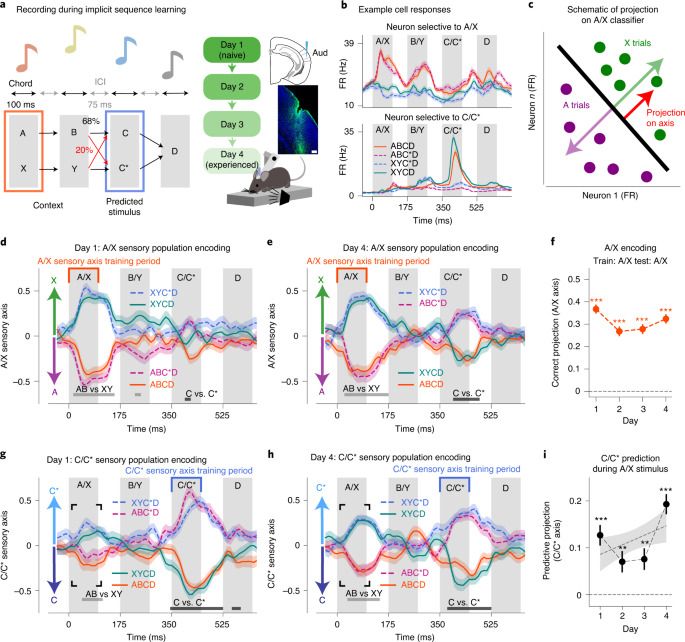The arrival of one Crew Dragon capsule sets the stage for the departure and return to Earth of another.
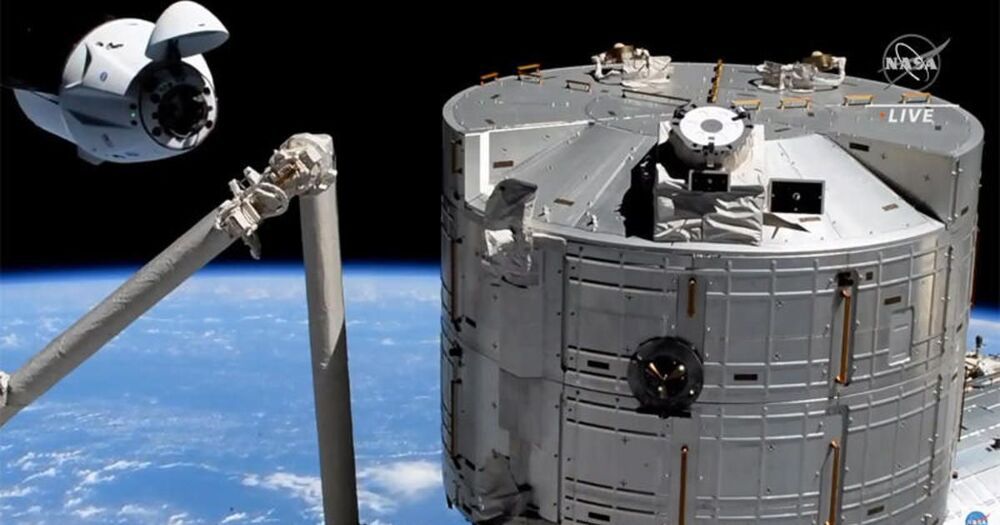

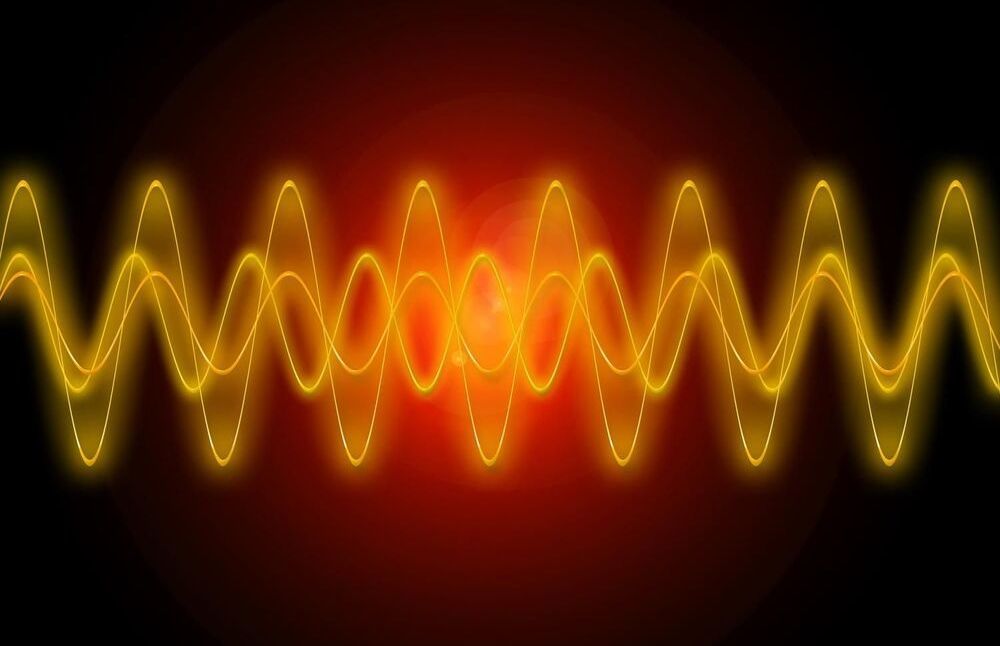
A team led by Prof. GUO Guangcan and Prof. ZOU Changling from the University of Science and Technology of China of the Chinese Academy of Sciences realized efficient frequency conversion in microresonators via a degenerate sum-frequency process, and achieved cross-band frequency conversion and amplification of converted signal through observing the cascaded nonlinear optical effects inside the microresonator. The study was published in Physical Review Letters.
Coherent frequency conversion process has wide application in classical and quantum information fields such as communication, detection, sensing, and imaging. As a bridge connecting wavebands between fiber telecommunications and atomic transition, coherent frequency conversion is a necessary interface for distributed quantum computing and quantum networks.
Integrated nonlinear photonic chip stands out because of its significant technological advances of improving nonlinear optical effects by microresonator’s enhancing the light-matter interaction, along with other advantages like small size, great scalability, and low energy consumption. These make integrated nonlinear photonic chips an important platform to covert optical frequency efficiently and realize other nonlinear optical effects.
Hebrew University Researcher Introduces New Approach to Three-Body Problem, Predicts its Outcome Statistics.
The “three-body problem,” the term coined for predicting the motion of three gravitating bodies in space, is essential for understanding a variety of astrophysical processes as well as a large class of mechanical problems, and has occupied some of the world’s best physicists, astronomers and mathematicians for over three centuries. Their attempts have led to the discovery of several important fields of science; yet its solution remained a mystery.
At the end of the 17th century, Sir Isaac Newton succeeded in explaining the motion of the planets around the sun through a law of universal gravitation. He also sought to explain the motion of the moon. Since both the earth and the sun determine the motion of the moon, Newton became interested in the problem of predicting the motion of three bodies moving in space under the influence of their mutual gravitational attraction (see illustration to the right), a problem that later became known as “the three-body problem.”
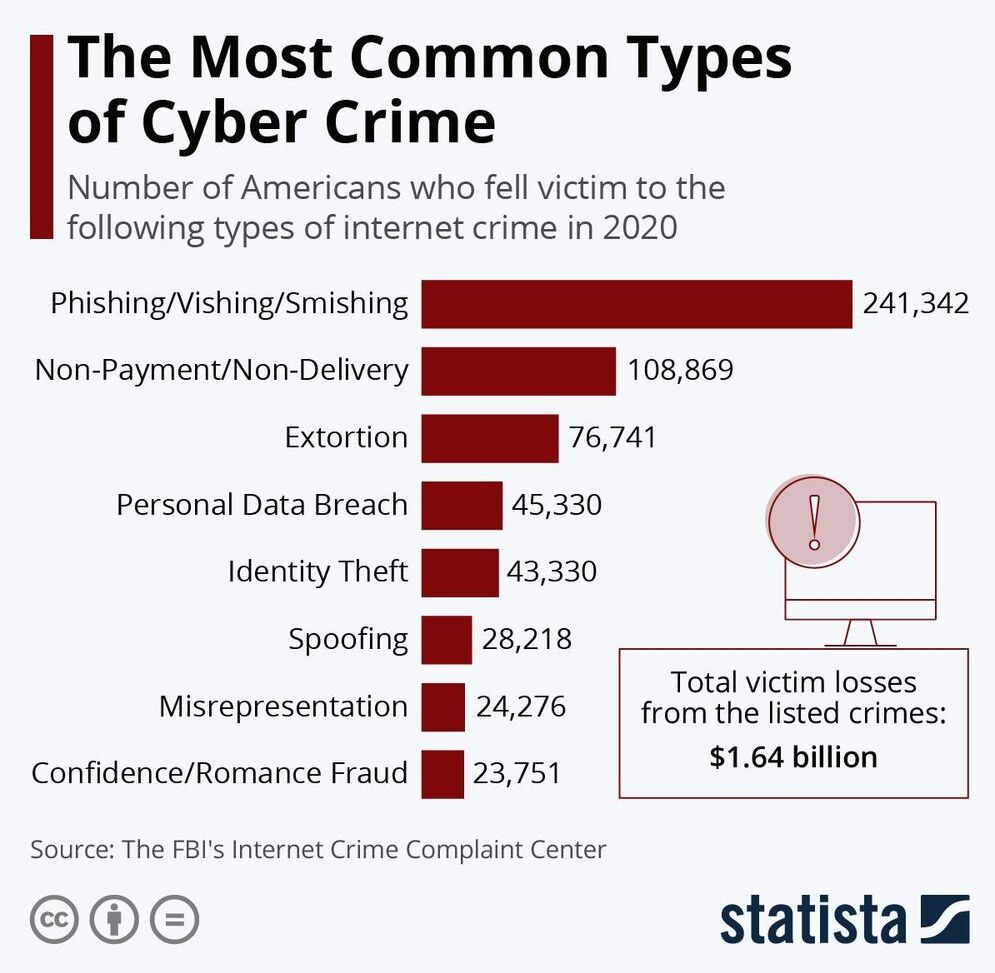
Deleting another spam email in our inbox is becoming an everyday habit. Some may have even had their accounts hacked after clicking a misleading link or had their identities stolen. These are some common cybercrimes and as our reliance on the internet grows, our interactions with cybercrimes becomes more frequent.
According to a recent FBI report on internet crime, 241342 Americans fell victim to phishing, vishing (via call) and smishing (via text) attacks last year, making it the most common type of cybercrime.
This chart shows the most common types of internet crimes in the U.S. in 2020.

“More than 100 malaria vaccine candidates have entered clinical trials in recent decades, but none has shown efficacy greater than 75% – until now.” https://www.futuretimeline.net/images/socialmedia/
Researchers led by the University of Oxford have completed a Phase II trial of R21/Matrix-M, a candidate malaria vaccine, which demonstrated an efficacy of 77% over 12-months of follow-up.
In their findings, posted on SSRN/Preprints with The Lancet, they note that their study is the first to reach the World Health Organization’s goal for a vaccine with at least 75% efficacy by 2030. It represents a substantial improvement over the current most effective malaria vaccine, which has shown just 55% efficacy in trials on African children.
The authors conducted a randomised, controlled, double-blind trial at the Clinical Research Unit of Nanoro (CRUN) / Institut de Recherche en Sciences de la Santé (IRSS), in the West African country of Burkina Faso. They recruited 450 participants, aged 5–17 months, from the catchment area of Nanoro, covering 24 villages and a population of 65000 people.
The most interesting part is a longevity escape velocity answer starting at 12:19 and going to 16:30.
Join Aubrey de Grey, Ph.D., Sergey Young, and Sourav Sinha as they talk about how our understanding of aging has developed in the last two decades. They will discuss:
- 7 Mechanisms of Aging.
- Longevity Escape Velocity.
- Human lifespan extension options we have today.
Aubrey de Grey is a biomedical gerontologist and the Chief Science Officer of the SENS Research Foundation. He is editor-in-chief of the academic journal Rejuvenation Research, author of The Mitochondrial Free Radical Theory of Aging (1999), and co-author of Ending Aging (2007)
Sergey Young is the founder of Longevity Vision Fund, XPRIZE Innovation Board member, one of Top-100 Longevity Leaders, and a Forbes Tech Council contributor.
You know, when you have North Korea at your side, it is better to always stay on the alert. And when your country’s coastline is washed by the Sea of Japan and the East China Sea, double attention is required. You guessed it right, we’re talking about the Republic of South Korea and its Air Force (ROKAF).
Today there are two American air bases on the territory of South Korea — Osan and Kusan, which are covered by the Patriot air defense system.
The total number of ROKAF and US Air Force fighters at all South Korean air bases is about 500 combat aircraft. Most of them are the 4th generation fighters that are about to become obsolete.
But if the airspace of your country is violated by China and Russia 10–15 times a year, you can’t rely solely on your allies. The only condition for relative peace is modern fighters.
#Korea #testing #new #jetfighter.
For copyright matters please contact us at:
[email protected]
Fasting is one of those subjects that is widely talked about, in limited circles. Those who have looked cannot but be intrigued and impressed by the claims and results, whilst those who have not, think it borders on madness, and must be bad for you because…well, FOOD!!
So, for those who want a refresher on the science, through to those who have questions they have always been embarrassed to ask, and onwards to all those you want to send this link to, in an attempt to open their eyes…I did a quick guide to what we know, what are just finding out and at the end, the top questions that get asked on the topic.
Hope you enjoy and have a great day.
It is not just what you eat that matters but when you eat it is also something to consider.
Intermittent and prolonged fasting are showing themselves to very much be part of the repertoire to anyone serious about their health and longevity objectives.
If you want to know more about what to eat, watch my video on diet here.
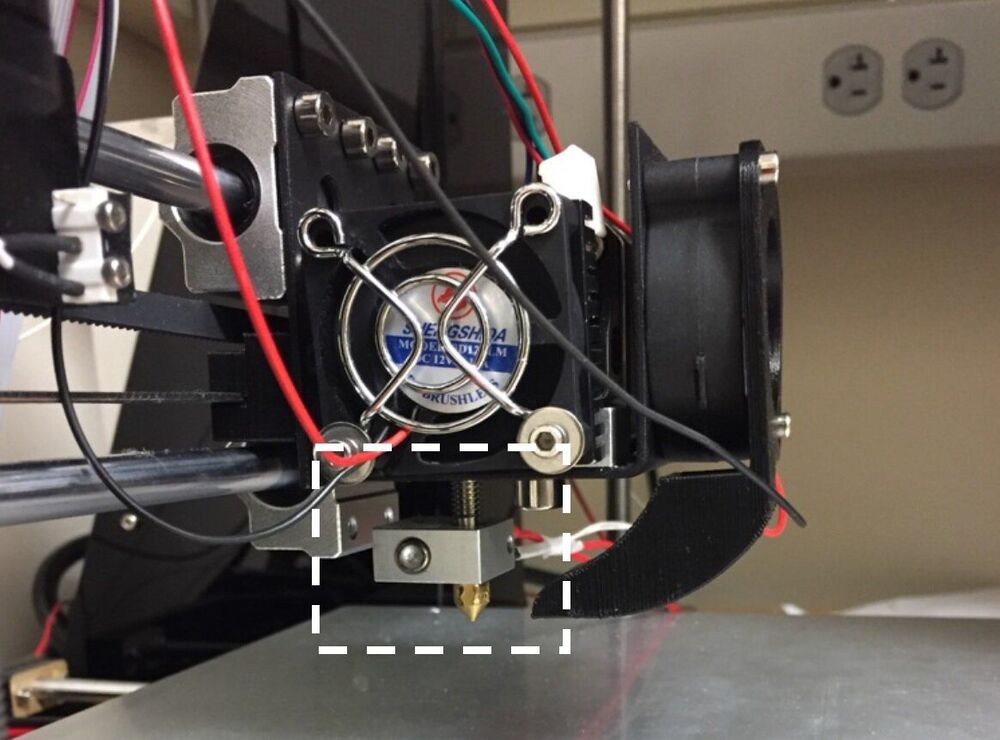
3D printing is transforming everything from fashion and health care to transportation and toys. But this rapidly evolving technology, also known as additive manufacturing, can threaten national security and intellectual property rights.
To reduce illicit use of 3D printers, Zhanpeng Jin, Ph.D., associate professor in the Department of Computer Science and Engineering at the University at Buffalo, is developing a way to track the origin of 3D-printed items.
His concern was that, as long as people have the digital design for an item, which can be downloaded from the internet, sometimes as open-source material, people can print out anything they want, which can range from computer parts and toys to fully functional handguns and assault rifles.
